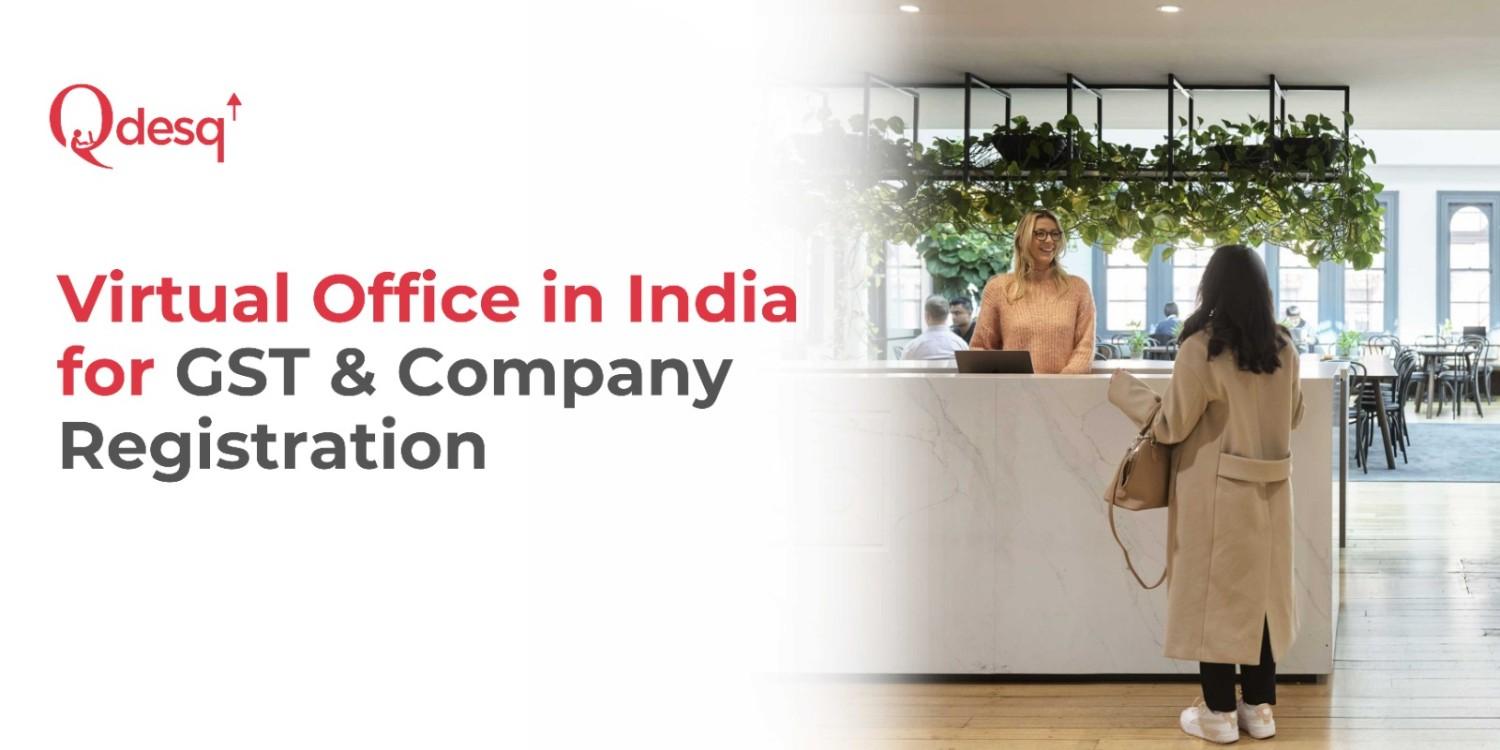In a world where business doesn’t need walls, the idea of what qualifies as an “office” has radically transformed. Today, a physical space isn’t a prerequisite to register a business, apply for GST, or build a credible corporate presence. Enter the virtual office, a low-investment, high-impact solution reshaping how businesses launch, operate, and expand across India.
If you’re a startup founder, remote entrepreneur, or a company exploring new markets, renting a virtual office in India is one of the smartest, most compliant ways to establish your footprint, without leasing a single square foot.
Let’s explain why virtual offices have become indispensable, how the process works, and what you need to know before starting.
The Rise of the Virtual Office in India
Five years ago, the idea of running a business from a laptop at a café and using a coworking space address for GST registration might have raised eyebrows. Today, it’s standard practice. Virtual offices are not just popular—they’re compliant, scalable, and incredibly efficient.
Whether running an e-commerce brand in Jaipur, offering consulting services from Kochi, or launching a tech firm in Pune, a virtual office lets you establish a professional business address in any city you choose. And the best part? It meets the full compliance checklist for GST registration, company incorporation, and official correspondence.
What Exactly Is a Virtual Office?
A virtual office is a commercial business address offered by a workspace provider that can be used for:
- GST registration in any Indian state
- Business registration with the Registrar of Companies (ROC)
- Receiving official mail and legal notices
- Displaying on websites, invoices, and stationery
- Booking physical meeting rooms on demand
You’re not renting a desk—you’re renting presence, credibility, and compliance.
This model is compelling for startups, freelancers, online sellers, and companies expanding into new markets where they don’t yet require a full-time office setup.
Why It Works Perfectly for GST Registration
Every business operating across state lines in India must register for state-wise GST numbers. But maintaining a physical office in every state is expensive, inefficient, and unnecessary—especially for SMEs and digital-first brands.
That’s where virtual offices become a game-changer.
Under the GST framework, the following three documents are required to validate any business address:
- Rent Agreement in the company’s name
- No Objection Certificate (NOC) from the space owner
- Recent Utility Bill for the premises
Leading virtual office providers, like Qdesq, provide all three documents within 48–72 hours of onboarding, making your GST registration smooth and fully compliant with government regulations.
So yes, virtual offices are not only legal—they’re designed to meet regulatory requirements.
Who Should Opt for a Virtual Office?
A virtual office is more than a workaround. It’s a strategic business asset for:
- Startups looking to save capital and scale quickly
- E-commerce sellers needing local GST numbers in key states
- Freelancers & consultants who want a professional business address
- Remote-first companies with no centralised physical office
- Established firms expanding into new cities for sales or logistics
Instead of investing lakhs in real estate, you get a credible commercial address starting at just ₹1,000–₹2,500/month.
It’s cost-effective, agile, and scalable—and in a country as geographically diverse as India, that flexibility is gold.
How to Rent a Virtual Office in India
Getting started is far simpler than most people think. Here’s how it works:
1. Choose Your City & Location
Start by identifying where you need your business registered—this could be based on GST jurisdiction, market potential, or logistics strategy. The most in-demand zones are Delhi, Mumbai, Bengaluru, Hyderabad, Pune, Chennai, and Gurugram.
2. Select a Verified Provider
Partner with an established platform like Qdesq, which connects you with 100% compliant, pre-verified coworking centres offering virtual office services across India.
3. Submit KYC Documents
Provide your PAN, Aadhaar, company registration certificate, and basic company details.
4. Make the Payment
Based on the city and address, pay the annual or monthly fee. Packages may also include mail handling or meeting room credits.
5. Get Your Documentation
Within 2–3 working days, you’ll receive:
- Registered rent agreement
- NOC from the space provider
- Latest utility bill
You can now proceed with GST filing or company registration confidently.
Why Qdesq is the Stand-Out Choice For Virtual Offices Across India
While many coworking spaces offer virtual offices, Qdesq brings unmatched ease, speed, and reliability.
- Pan-India Network – 60+ cities, 2000+ verified locations
- Zero Brokerage – No middlemen, no hidden fees
- Quick Turnaround – Documentation delivered in 48–72 hours
- Support Team On Call – End-to-end onboarding assistance
- Enterprise-Ready – Trusted by 10,000+ businesses across sectors
Whether applying for GST, opening a new branch, or simply wanting a credible office address in another state, Qdesq simplifies it all.
Final Thoughts
In a time when agility is everything and every rupee counts, virtual offices offer Indian businesses a smarter path to legitimacy, scale, and compliance.
You no longer need to lease a sprawling office to be seen as credible. All you need is the right partner—and the correct address.
At Qdesq, we believe your workspace should work for you, not vice versa. If you want to set up your business the smart way, a virtual office is where your journey begins.











